FROM QUILLS TO TWEETS
FROM QUILLS
TO TWEETS
HOW AMERICA
COMMUNICATES
ABOUT WAR AND
REVOLUTION
ANDREA J. DEW, MARC A. GENEST, and S. C. M. PAINE
EDITORS
2019 Georgetown University Press. All rights reserved. No part of this book may be reproduced or utilized in any form or by any means, electronic or mechanical, including photocopying and recording, or by any information storage and retrieval system, without permission in writing from the publisher.
The publisher is not responsible for third-party websites or their content. URL links were active at time of publication.
Library of Congress Cataloging-in-Publication Data
Names: Dew, Andrea J., editor. | Genest, Marc A., 1958 editor. | Paine, S. C. M., 1957 editor.
Title: From Quills to Tweets : How America Communicates about War and Revolution / Andrea J. Dew, Marc A. Genest, and S.C.M. Paine, editors.
Description: Washington, D.C. : Georgetown University Press, 2020. | Includes bibliographical references and index. |
Identifiers: LCCN 2019003697 (print) | LCCN 2019018836 (ebook) | ISBN 9781626167117 (hardcover : alk. paper) | ISBN 9781626167124 (pbk.: alk. paper) | ISBN 9781626167131 (ebook : alk. paper)
Subjects: LCSH: Mass media and warUnited States. | Mass mediaPolitical aspectsUnited States. | Communication in politicsUnited States. | Social mediaPolitical aspectsUnited States.
Classification: LCC P96.W352 (ebook) | LCC P96.W352 U5556 2020 (print) | DDC 070.4/49355020973dc23
LC record available at https://lccn.loc.gov/2019003697

This book is printed on acid-free paper meeting the requirements of the American National Standard for Permanence in Paper for Printed Library Materials.
21 20 19 9 8 7 6 5 4 3 2 First printing
Printed in the United States of America.
Cover design by Jeremy Parker.
Cover images courtesy of shutterstock (Condoleeza Rice); iStock (Morse Code & Telegraph, msnbc.com main page, hashtag image, Walter printing press, quill & inkwell, soldiers against a sunset); Library of Congress (President Franklin D. Roosevelt, Ultimatum! newspaper clipping, telegraph operator, Theodore Roosevelt leading the Rough Riders); U.S. National Archives & Records Administration (President Lyndon B. Johnson)
To our students and military teaching partnersthank you for the education.
To our familiesJohn E., Sheila, Bev, Caroline, and our newest reader, Alexanderthank you for your support and encouragement; to Pauline, Nate, and Carolinethank for your love and inspiration; and to Bruce, Anna, and Steventhank you for the support and patience.
Contents
Andrea J. Dew, Marc A. Genest, and S. C. M. Paine
Marc A. Genest
Marc A. Genest
Troy Bickham
Marc A. Genest
Martin J. Manning
Michelle D. Getchell
David J. Silbey
Bruce A. Elleman
J. Lee Thompson
Marc A. Genest
S. C. M. Paine
Michael G. Carew
Steven Casey
Marc A. Genest
David Kaiser
Judith Baroody
Andrea J. Dew and Marc A. Genest
Thomas H. Johnson and Matthew C. DuPe
Haroro J. Ingram and Craig A. Whiteside
Andrea J. Dew
Andrea J. Dew, Marc A. Genest, S. C. M. Paine
Acknowledgments
The analysis and opinions expressed by the authors and editors of this book do not represent the views of the Department of Defense, the US Naval War College, or any government agency.
The editors would like to express their sincere thanks to Donald Jacobs and the staff at Georgetown University Press for all their support and encouragement. We would also like to thank our very talented copy editor, Julie Kimmel, and the anonymous reviewers who helped to strengthen the manuscript.
Introduction: Message, Messenger, Medium, and Political Environment
Andrea J. Dew, Marc A. Genest, and S. C. M. Paine
War is the most consequential form of communication engaged in by human beings. It is a lethal form of political messaging that relies on violence to defend ones interests or compel others to accept ones ideological, social, economic, or territorial aims. Given the enormous stakes, it is little wonder that scholars have riveted their attention on the violence of warfare. This book, however, tacks in a different direction by exploring the role that information, political narratives, and the evolving nature of communications technology have played in precipitating, prolonging, and concluding wars over the course of American history.
From Quills to Tweets examines the changing role that information, rhetoric, and communications technology have played in shaping the American political landscape. From the rebellion against Great Britain to contemporary conflicts in Iraq and Afghanistan, one thing remains clear: war is a political campaign in which violence plays a necessary but not sufficient role in the outcome. Since war is suffused with politics, its conduct requires all the tools associated with waging a political campaign. The management of war entails more than just military acumen; it requires effective messengers, messages, and media and skillful management to construct and disseminate compelling arguments justifying the costs both at home and abroad. Adversaries must communicate their aims, actions, and decisions to a wide variety of audiences. To accomplish this task, belligerents build communications networks, construct narratives, circulate messages, defend their supporters, and attack their opponents. The pen may not be mightier than the sword, but success in war is often as dependent on the pen (or quill, telegraph, newspaper, television, or tweet) as it is on traditional military means.
This edited volume examines the American way of communicating war. We look at the impact that the messengers, messages, mechanisms, and management of information and persuasion have on the course and conduct of warfare throughout American history. We consider a wide array of topics, all of which touch on important issues associated with political communication preceding and during hostilities. What effect do civilian and military leaders as well as journalists have on creating war narratives? How has press coverage of political squabbles between military and political leaders affected popular support? How have advances in communications technologies influenced the conduct of war? Has the internet allowed non-state actors to compete with the United States on a level playing field in the information game? If so, how has that influenced the ability of the United States to achieve its aims in Afghanistan, Iraq, and elsewhere? We examine these and many other questions in this book.
We do not attempt to provide a comprehensive assessment of all the various components that make up the art and science of communicating war. Rather, each reading takes a different conflict and offers a unique assessment of a particular aspect of the communication battle. While we investigate the impact of technological advances on warfare, we focus primarily on the political and military implications rather than delving into the science behind the technology.

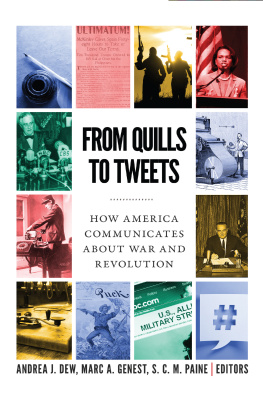


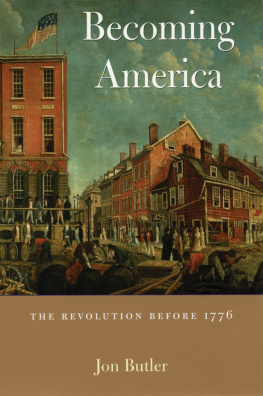

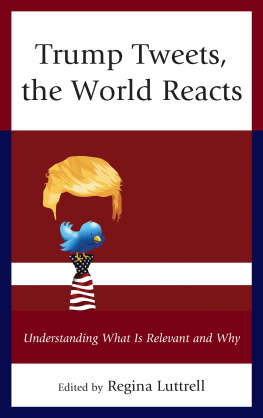
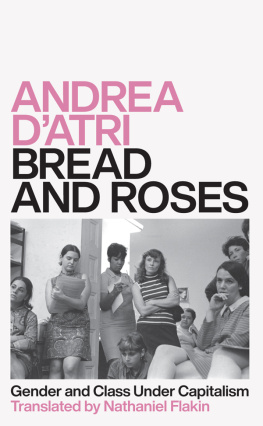

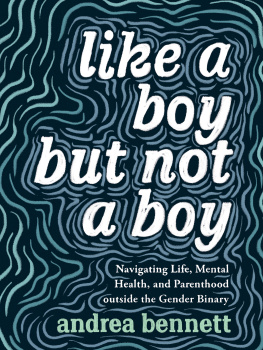
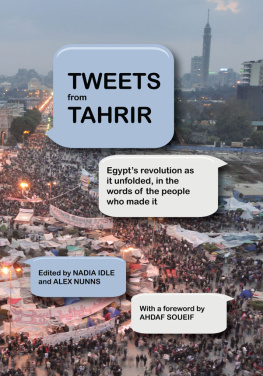


 This book is printed on acid-free paper meeting the requirements of the American National Standard for Permanence in Paper for Printed Library Materials.
This book is printed on acid-free paper meeting the requirements of the American National Standard for Permanence in Paper for Printed Library Materials.